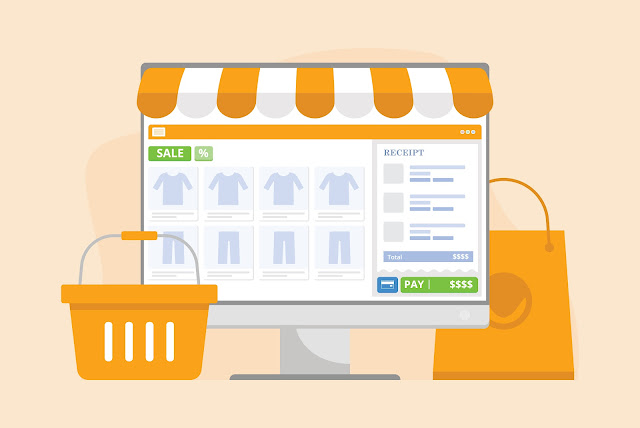Marketplaces for Multi-Channel Selling: A Comparison Guide
Multi-channel selling has become a critical tactic for companies wanting to broaden their customer base and boost income in the current e-commerce environment. Businesses can reach a larger audience, gain access to useful consumer data, and diversify their revenue streams by offering products on a number of marketplaces. To choose the right marketplace for your company, however, might be difficult given the wide variety of options available. We'll compare some of the most well-liked marketplaces for multi-channel selling in this article.
.jpg) |
| Multi-Channel Selling |
1. Amazon
With more than 300 million active users globally, Amazon is one of the biggest and most well-known e-commerce platforms. You will have access to a sizable audience as an Amazon multi-channel seller, as well as tools for inventory management, order fulfilment, and customer service. Amazon also provides advertising tools to aid in boosting your profile and generating sales. The competition can be severe, and Amazon's fees might be expensive, so it's critical to have a strong price and advertising strategy in place.
2. eBay
Another well-known platform that appeals to consumers and sellers alike is eBay. eBay has more than 185 million active users globally and a vast selection of product categories. You can benefit from advantages like customizable listings, auction-style sales, and seller discounts as an eBay multi-channel seller. The marketplace is renowned for its tight standards and buyer safety procedures, yet eBay's fees can sometimes be exorbitant.
3. Walmart
Walmart is a strong challenger for multi-channel selling as a result of its recent quick expansion of its online marketplace. Walmart provides a sizable audience, as well as solutions for inventory management, order fulfilment, and advertising, with over 120 million unique monthly visitors. Walmart is known for having reasonable prices and quick shipping, both of which might help you draw in more customers. The application process to sell on Walmart can be difficult and time-consuming, and their costs can be greater than those of other marketplaces.
4. Shopify
With the e-commerce platform Shopify, companies can create their own online store and market their products via social media, online marketplaces, and their own website. Shopify offers a configurable platform with a number of capabilities for managing inventory, orders, and customer data. Shopify has over 1.7 million active merchants. Shopify is a practical choice for multi-channel selling because it also provides connectors with well-known marketplaces like Amazon and eBay. However, Shopify might have more expensive fees than other e-commerce platforms, and setting it up and maintaining it needs some technical know-how.
5. Etsy
The online store Etsy focuses on handcrafted, vintage, and one-of-a-kind goods. Etsy provides a unique audience that is passionate about one-of-a-kind products, with over 81 million active purchasers. You can benefit from advantages like customizable listings, advertising choices, and community assistance as a multi-channel vendor on Etsy. Etsy is notorious for its stringent restrictions about handmade and vintage goods, and its fees can be exorbitant.
6. Facebook Marketplace
Businesses can list and sell things to Facebook users in their neighbourhood using the free Facebook Marketplace tool. Facebook Marketplace provides a big potential market and the ease of selling to local clients with its over 2.8 billion monthly active users. You may benefit from features like chat, listings with photographs and descriptions, and buyer reviews as a multi-channel vendor on Facebook Marketplace. Facebook Marketplace may not be the greatest option for many businesses because it doesn't provide the same degree of features for inventory management, order fulfilment, and promotion as other marketplaces.
In conclusion, there are numerous well-known marketplaces for multi-channel selling, each with unique advantages and disadvantages. It's crucial to take your business objectives, target market, and product offerings into account when choosing which marketplaces to sell on. When making your choice, you could also want to take into account aspects like costs, competition, and client testimonials.
It's also important to remember that successful multi-channel selling calls for careful preparation and administration. You must make sure that your product listings are uniform across all channels, that your inventory is precisely tracked and updated, and that you are giving your consumers good support across all platforms. A multi-channel seller's overall effectiveness can be enhanced by making investments in systems like inventory management and customer relationship management (CRM) software.
Finally, remaining flexible and nimble is essential for multi-channel selling success. Keep an eye on your sales statistics and client feedback to spot areas that could use development, and be open to try out various markets and marketing techniques to see what works best for your company. Multi-channel selling may be a potent tool for increasing your sales and growing your organization with the appropriate strategy and an open mind.


Comments
Post a Comment